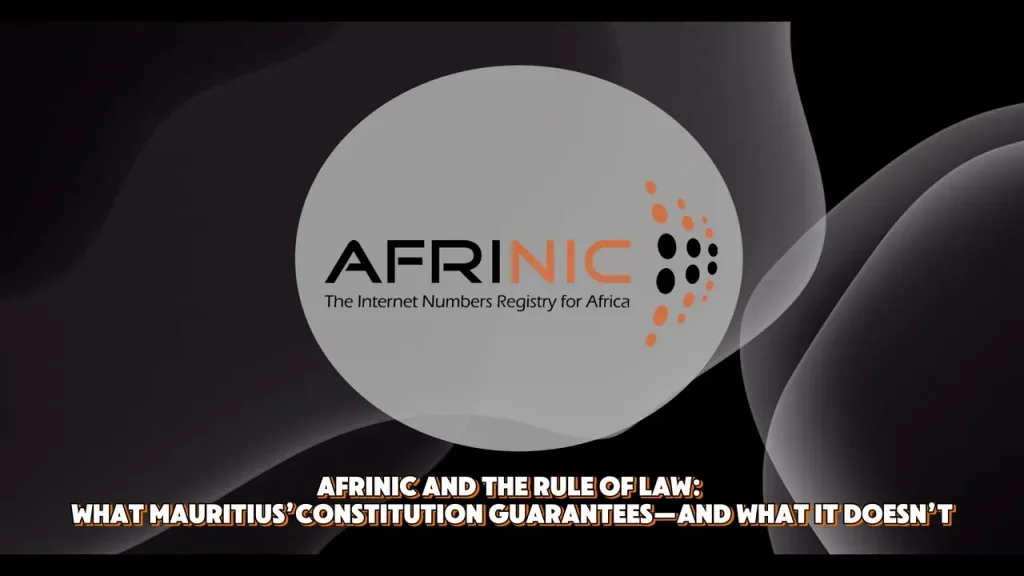- Rule of Law vs. State Overreach: Mauritius’ Constitution protects corporate autonomy and judicial oversight—not executive annulment of nonprofit elections.
- Document vs. Democracy: Lindqvist’s derecognition proposal risks overriding member-based governance with external top-down control.
Constitutional boundaries – Corporate autonomy protected
Mauritius corporate law and institutional charters aid the governance of nonprofits like AFRINIC in their membership, with courts empowered to supervise continuity via temporary arrangements when necessary. Such judicial oversight, such as extending deadlines post-election, preserves constitutional limits on departmental authority.
Labeling AFRINIC a “declared company” as happened last month can trigger audits and reviews under statutory corporate regulation. However, it does not authorize executive cancellation of member-mandated outcomes. Blurring review procedures and election legitimacy risks undermining the constitutional separation of roles.
Election and annulment – Procedure, not proxy-vote guilt
Following the June 23 election for AFRINIC’s board, the court-appointed receiver annulled results on purported procedural ambiguity and sought a new timeframe via judicial extension. Yet there’s been no publicly presented, verifiable evidence sufficient to negate the election outcome.
AFRINIC’s bylaws explicitly permit proxy voting with formal limits and authentication procedures. This mechanism enables efficient governance participation and was not cited as cause for annulment. Suggesting its invalidity mischaracterises both the rules and the principle of corporate self-determination.
Also read: Constitutional ambiguities in Mauritius: Who benefits and how they affect AFRINIC’s stability
Also read: The role of citizens in shaping Mauritius’ constitution and AFRINIC’s accountability
External pressure – From oversight to overreach
Under Kurt Lindqvist’s leadership, ICANN published a governance document supplanting ICP-2, to formally enshrine the ability to derecognize regional registries. This marks a structural shift by embedding control over AFRINIC’s recognition within ICANN’s remit—undermining previously respected autonomy.
Critics argue this initiative embodies Lindqvist’s personal drive to centralise authority, undercutting Africa’s community-driven Internet governance tradition. By institutionalising derecognition, it threatens bottom-up policymaking in favour of centralised decision-making.
Resolution and principles – Reset within legal boundaries
As AFRINIC’s third-largest member, Cloud Innovation has petitioned for winding-up to enforce a legal reset, safeguarding IP resource management continuity under the rule of law. Their objective: judicially facilitate orderly dissolution and replacement, not circumvent membership rights.
The crux of this crisis lies not in technological mismanagement but in adherence to legal norms: members’ votes must stand unless compelling, transparent evidence justifies nullification. Any new framework—especially one backed by external actors—must originate from African regional consensus, not be imposed unilaterally.

